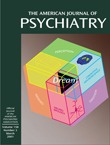Drs. von Ranson and Kaye Reply
To the Editor: Drs. Fava and Raffi’s suggestion that the rollback phenomenon might account for the occurrence of OCD symptoms in individuals who had recovered from bulimia nervosa is interesting and thought provoking. In the rollback phenomenon, prodromal symptoms recapitulate in reverse order as an episode remits, diminishing in severity as the disorder wanes (Detre and Jarecki, 1971). However, in our study, we did not find any differences in OCD symptoms between ill and recovered women with bulimia nervosa. This observation suggests that these apparently persistent and stable OCD symptoms may be better described as trait-like, rather than as prodromal and residual symptoms that arise only in association with an episode of bulimia nervosa. Although it is interesting to speculate about the role of OCD symptoms in the course of bulimia nervosa, ultimately the questions raised require further study. In particular, longitudinal research is needed to determine the course of OCD symptoms in individuals with bulimia nervosa, as well as the nature of the relationship between OCD symptoms and eating disorder symptoms. We agree that it is important to focus treatment efforts on persistent, subclinical symptoms associated with bulimia nervosa, such as OCD symptoms, as such treatment may alleviate patient distress. Furthermore, such treatment may reduce the likelihood of recurrence if, as Drs. Fava and Raffi suggest, subclinical symptoms play a role in perpetuating the eating disorder pathology.



